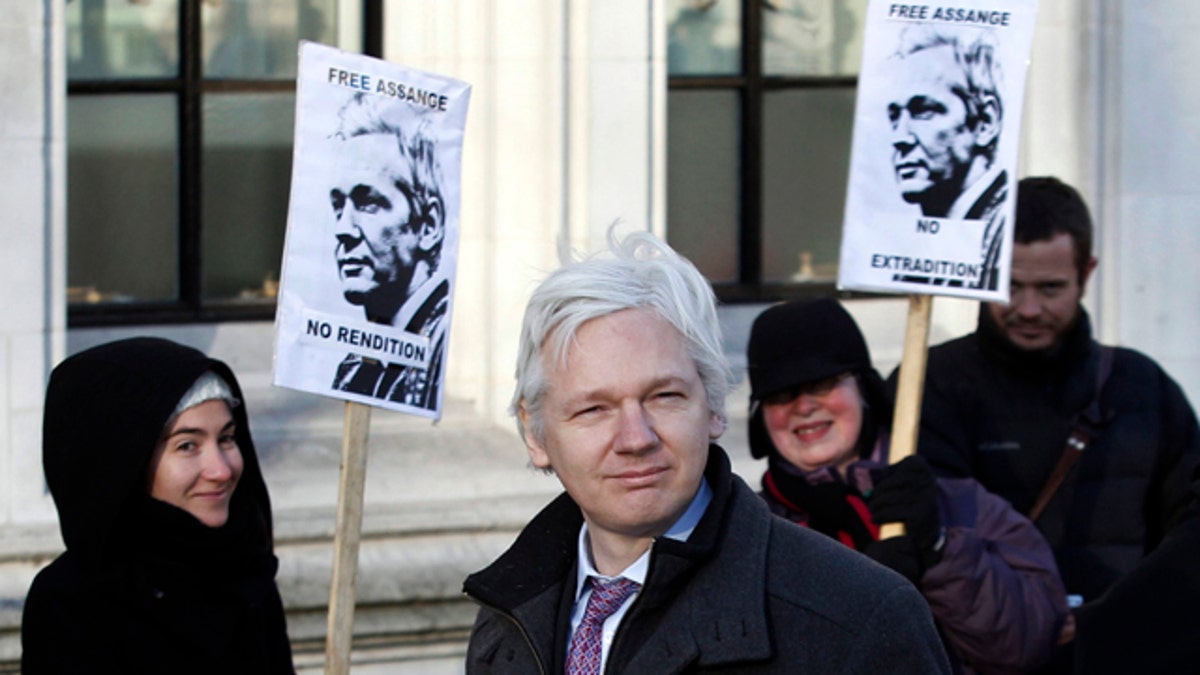
Feb 2, 2012: Julian Assange WikiLeaks founder arrives at the Supreme Court in London. Julian Assange took his extradition battle to Britain's Supreme Court on Wednesday, arguing that sending him to Sweden would violate a fundamental legal principle. (AP)
LONDON-- Sweden's public prosecutor argued for the extradition of Julian Assange on Thursday, insisting before Britain's Supreme Court that it had the right to order his return to Scandinavia.
The chief of the WikiLeaks secret-spilling site is fighting sex crime allegations stemming from encounters with two Swedish women during a trip there in 2010. Assange denies the allegation and has refused to return to Sweden, saying he fears the case against him has been manipulated for political ends and that he wouldn't receive a fair trial.
Although the WikiLeaks saga is shot through with international intrigue, the case before the Supreme Court hinges on a dry technical point: Whether Sweden's public prosecutor was within its rights to issue a European warrant for Assange's arrest.
Assange's legal team says it wasn't, arguing that only courts, not prosecutors, should be allowed to issue arrest warrants. Allowing prosecutors to order extradition would effectively allow them to act as judges in their own case, Assange lawyer Dinah Rose argued Wednesday.
Clare Montgomery, the lawyer for Sweden's prosecution service, pushed back against the claim Thursday, noting that other European countries allowed public prosecutors to issue warrants and that in this case the move was endorsed by a Swedish court.
Allowing public prosecutors to seek extraditions was "consistent with long-standing state practice," she told the seven justices gathered at the court's wood-panelled Courtroom 1.
She enumerated nearly a dozen European countries which allowed prosecutors to pursue extraditions.
"The English notion of an arrest warrant issued by a court is very much an exception," she said.
Legal experts say Assange faces an uphill battle as his lawyers seek to quash the extradition effort.
British judges have tended to defer to foreign judicial systems when considering whether to endorse European arrest warrants, which fast-track the exchange of suspects between European countries.
The hearing is due to end later Thursday but a judgment isn't expected for another few weeks
Assange's legal battle has already been drawn out for more than a year, and until recently he spent much of the time under virtual house arrest at a wealthy supporter's English country mansion.
While fighting extradition Assange has raised his media profile by agreeing to do a talk show for Russian TV and to have his voice used in an episode of "The Simpsons."
Assange was in court Thursday, smiling as he walked past protesters waving "Free Assange" placards.
